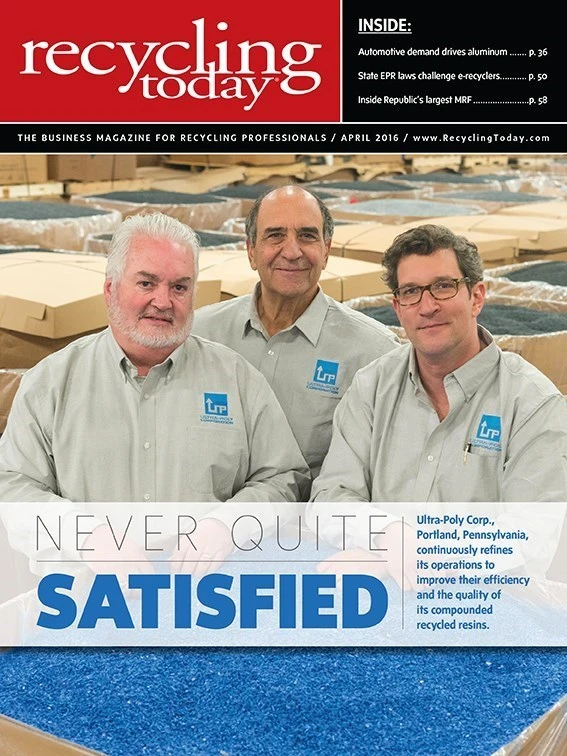
Recycling can be a complicated industry to explain to the uninitiated. This may be in part because only a fraction of it—curbside residential bin pickup—is visible to the wider public, and this fraction on its own is a relatively new part of the overall industry.
Curbside recycling’s role and value also involve aspects of taxpayer and government involvement that are comparatively absent in most other links in the recycling chain. When recycling firms collect from factories, warehouses and retailers to supply steel mills, aluminum smelters or containerboard mills, city councils and county commissioners (and the taxpayers they represent) are seldom involved.
As commodity prices have fallen in the past two years, negotiations between scrap metal and cardboard generators, recycling companies and mill consumers have certainly been stressful, and the market dynamics have changed greatly. These conversations and shifts in leverage, however, take place out of public view.
“As municipal contracts have come up for renewal in 2015 and 2016, the differing expectations of elected officials and waste and recycling companies are in plain view.”
That has not been the case with negotiations involving residential recycling programs. As collection and processing contracts have come up for renewal in 2015 and 2016, the differing expectations of elected officials and waste and recycling companies are sometimes in plain view.
In Fresno, California, that city’s council representatives were certain in late 2015 that they could get a better municipal contract than what was being offered to them. However, by late February 2016, as reported by the Fresno Bee, they had to admit defeat and acknowledge that the days of being paid $18.50 per ton for recyclables were over for now.
In early March, a similar story was unfolding in Houston, the home town of Waste Management Inc. (WM), and it involved WM and its CEO David Steiner.
For about a year, Steiner had been telling investors and the financial press that the financial equations for curbside recycling had changed along with lower commodity prices. Houston Mayor Sylvester Turner, before eventually agreeing to a new contract with WM, initially showed disdain for WM’s proposals to begin charging for collection and indicated at a city council meeting that he would look for a better deal.
Such story lines are likely to continue to emerge throughout 2016 and will be part of the focus of a feature article in our May issue on “The Economics of Recycling” that is being prepared by my colleague Megan Workman.
With commodity prices no longer soaring, advocates of curbside recycling will have to be ready with detailed dollars-and-cents defenses of the value of landfill diversion if they wish to score points with taxpayers.

Explore the April 2016 Issue
Check out more from this issue and find your next story to read.
Latest from Recycling Today
- Orion ramping up Rocky Mountain Steel rail line
- Proposed bill would provide ‘regulatory clarity’ for chemical recycling
- Alberta Ag-Plastic pilot program continues, expands with renewed funding
- ReMA urges open intra-North American scrap trade
- Axium awarded by regional organization
- Update: China to introduce steel export quotas
- Thyssenkrupp idles capacity in Europe
- Phoenix Technologies closes Ohio rPET facility





